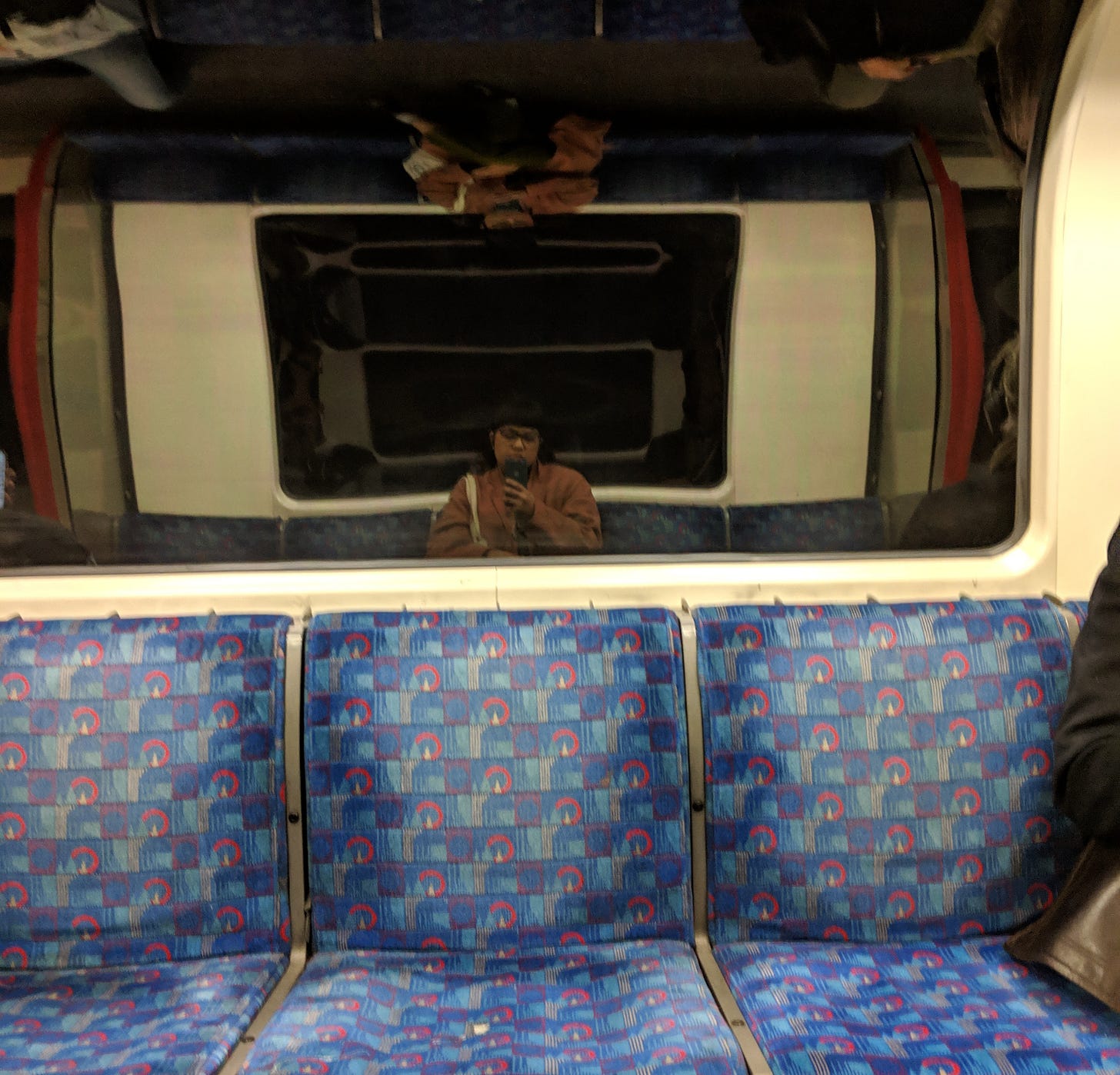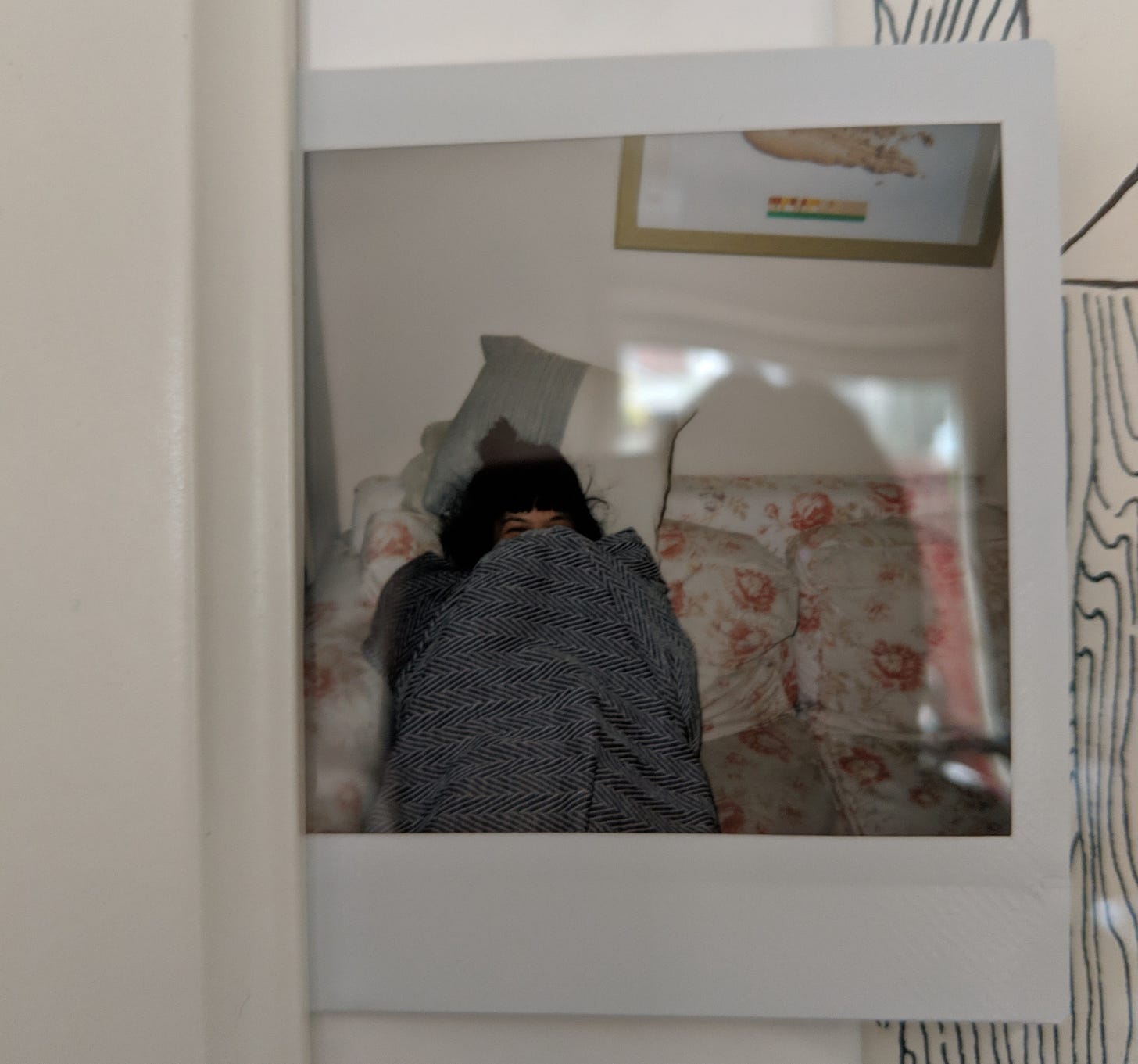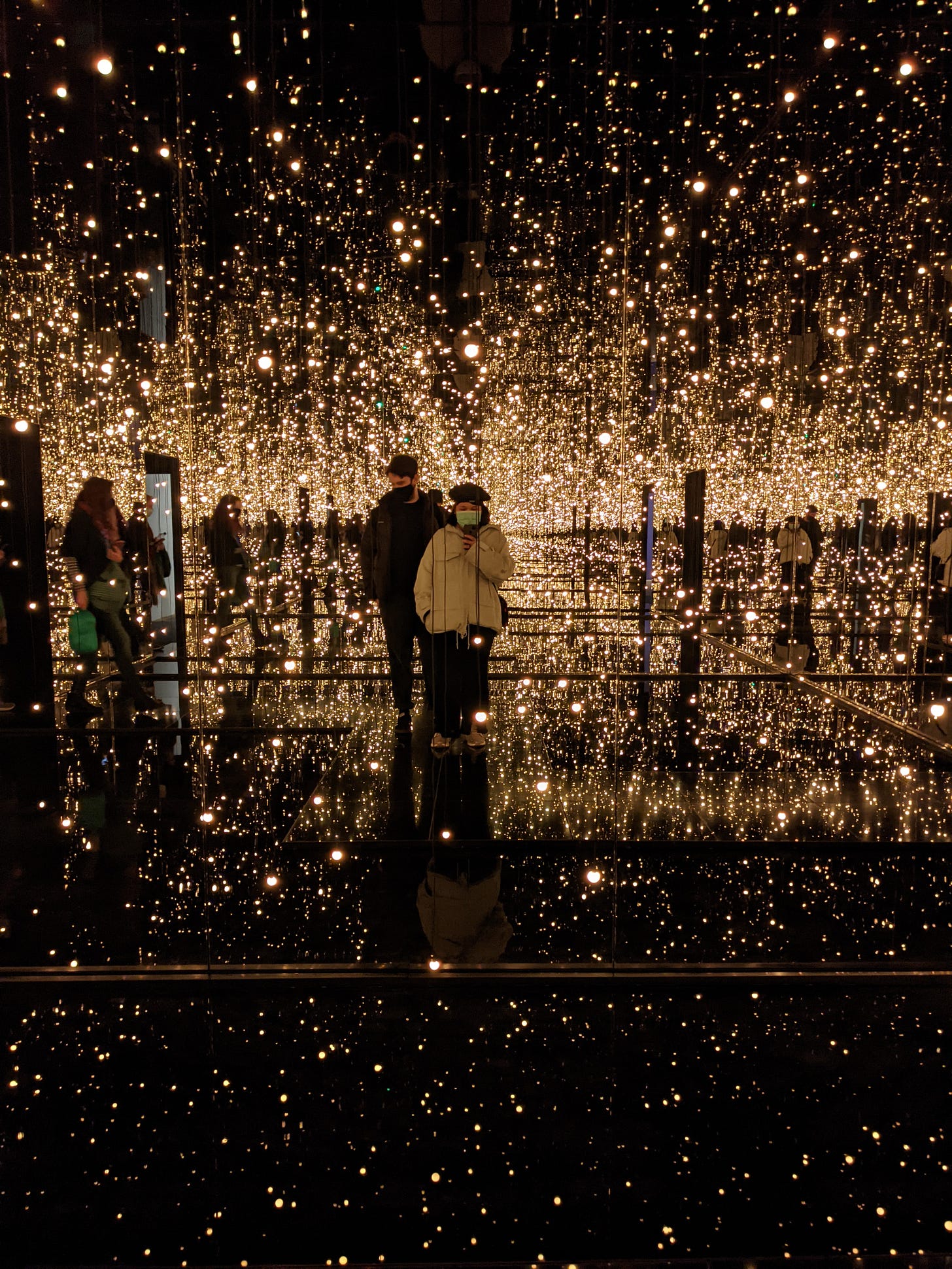Prior to watching it again at the end of last month at Prince Charles Cinema, I’ve seen In the Mood for Love (2000) four other times that I can remember. The first time was as as college freshman, when I was enamoured with a boy who was a year above me and who was the first person I had met that liked cool things. He has said it was his favourite Wong Kar-wai film, and at the time, I didn’t understand it.
In the Mood for Love was set in the 1960s British Hong Kong, and it’s mostly short scenes of two neighbours passing one another, both left alone by their respective spouses who seem to be preoccupied by their careers. After some time, they realise their spouses are having an affair, and they come together to imagine how this indiscretion came about, but not acting upon anything themselves. In the slow motion haze of Hong Kong in the rain, down alleyways and in the midst of atmospheric smoke, Mr. Chow and Mrs. Chan keep missing one another, locked in the trajectories of their own lives.
At 18, I thought it slow and a little bit boring; it was one of those films where nothing happened.
I saw Chungking Express (1994) after that and brazenly declared it my favourite WKW film (despite only having seen the two), cockily saying I didn’t understand why people liked In the Mood for Love so much more when Chungking Express was clearly superior. I hadn’t reached the level of longing the boy I liked must have had, for In the Mood for Love to resonate with him so, but I had wanted to be with him, armed with the optimism that Chungking Express offered me.
We didn’t end up together. He was still in love with a girl who was beautiful, and mysterious, and perhaps, wounded in a way that was more appealing than someone like me: fresh out of high school, full of emo-led angst, worried too much about guilt and punishment to do anything I may have wanted to do.
The second time I remember seeing it was over ten years later, rewatching it after I’d transplanted myself in another country. Now, the tones of loneliness and distance rang through my body more potently. I was alone in the world, I thought, and I would have to make my way through life like so. At the time, I had been seeing a man I met on a dating app, predictably named after one of the Gospels. We could never be together, not in the least because he was in an open relationship with his girlfriend, with whom he had been since he was sixteen.
They lived together! In a house they paid the mortgage for! Still, we saw each other every week, always at my single bedroom in student halls. Sometimes, because he taught secondary school, early enough to hear the call to prayer ring through the air from the nearby mosque close to Whitechapel station, around which was where I lived.
Living eight time zones away from home, and in a masters cohort of about 12: this was my first real understanding of loneliness. Truly understanding how alone one could be. I didn’t leave my childhood home until I was 29. Up until my late twenties, I had shared a room with my younger sister, and so even though I felt pangs of aloneness as teens are wont to, I never had to navigate much of life by myself.
Moving here, I had to take care of everything myself, solving problems that I never even really had to consider before. Being so ill, but having to be the person to pick up medication, because there was no one to call or care for me. Riding public transport to the A&E. Losing weight and going down two jeans sizes because I was sick of eating the three things I knew how to make. Thinking about my credit score.
Granted, this brand of loneliness and — allow me to be dramatic here — desolation is a whole other different brand to the one in the film, but slowly, I began to understand what it meant, and the time away from everyone allowed me the time to truly sit with all these new feelings.
My world opened up, but it proceeded to make me feel so small.
I ended up seeing this man for three years. At least once each week, sometimes more. I’ve even been to his house that he shared with his partner. He’s spent the night. I kept seeing him even after he told me they were expecting a baby. We said we loved each other, and for my part, I meant it.
When we stopped seeing each other, he had blocked me on all channels of communication, even though he had promised not to do so. I didn’t attempt to contact him, out of respect for the guy I was seeing then, who is incidentally, my now husband.
The last I checked (and unfortunately (?), I do check up on people from time to time), they’ve sold their house and moved up north. I don’t have a lot of things left to say to him, except maybe that I’m sorry we couldn’t be friends in the end. I don’t know why I feel the desire to keep in touch, but sharing your life with a person consistently for three years would form an attachment that’s not so quite hard to shake off. Especially if you’ve felt quite alone. Especially if the shape of a new city was built around this person. This is the type of thing I would maybe whisper in a hole and bury, though I guess I’ve decided to write it here instead.
The third time I saw In the Mood for Love, I was already with Mark. I watched it again after seeing, if you can believe it, Shang-Chi and the Legend of the Ten Rings (2021). I remembered how much I loved Tony Leung, and the gravitas he lent to a B-tier Marvel film was almost unfathomable.
At that point, I’d been seeing Mark for about a year. And the points of longing I could reach were different from the ones I had latched on to before. It became less about the inevitability of travelling parallel lives and never intersecting again, and more about the want of never losing something too beautiful to be true.
I still believe that. Despite arguments and disagreements, I am often in awe of the person I somehow ended up with. How lovely he is, and how kind. My mother has asked me more than once how it is that Mark is so nice to me. I still don’t know; I know I’ve done enough things to not deserve it, but kindness often doesn’t operate on merit.
In my perfect world, Mr. Chow and Mrs. Chan should have been together. And it’s painful to think about, because I live in my perfect world. I didn’t know it then, but now, three years after seeing the film and feeling good about my own relationship, I know this intimately.
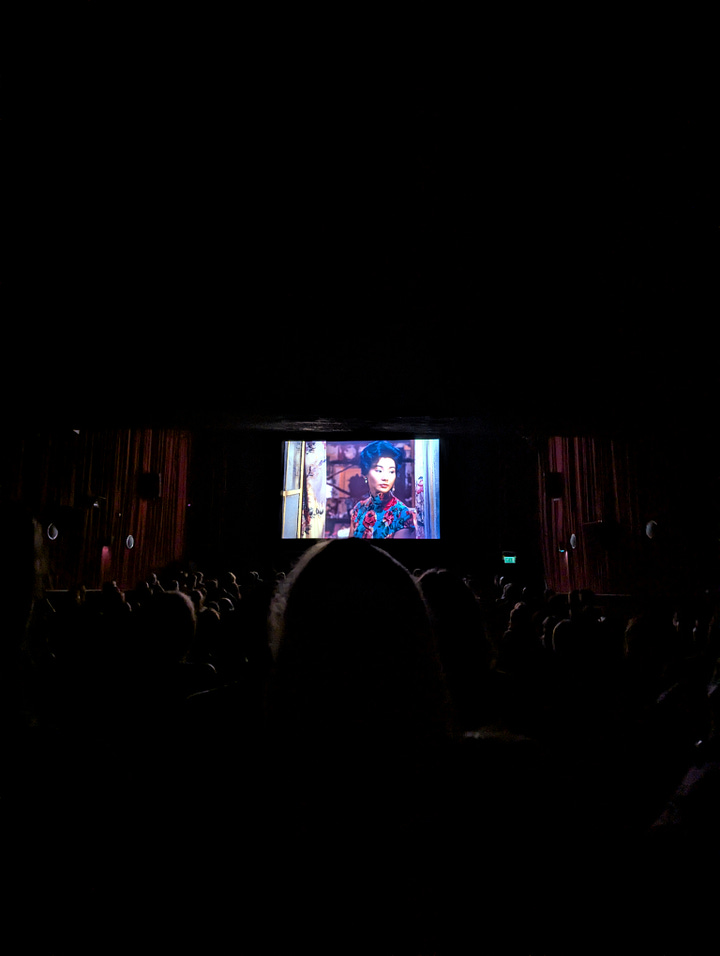
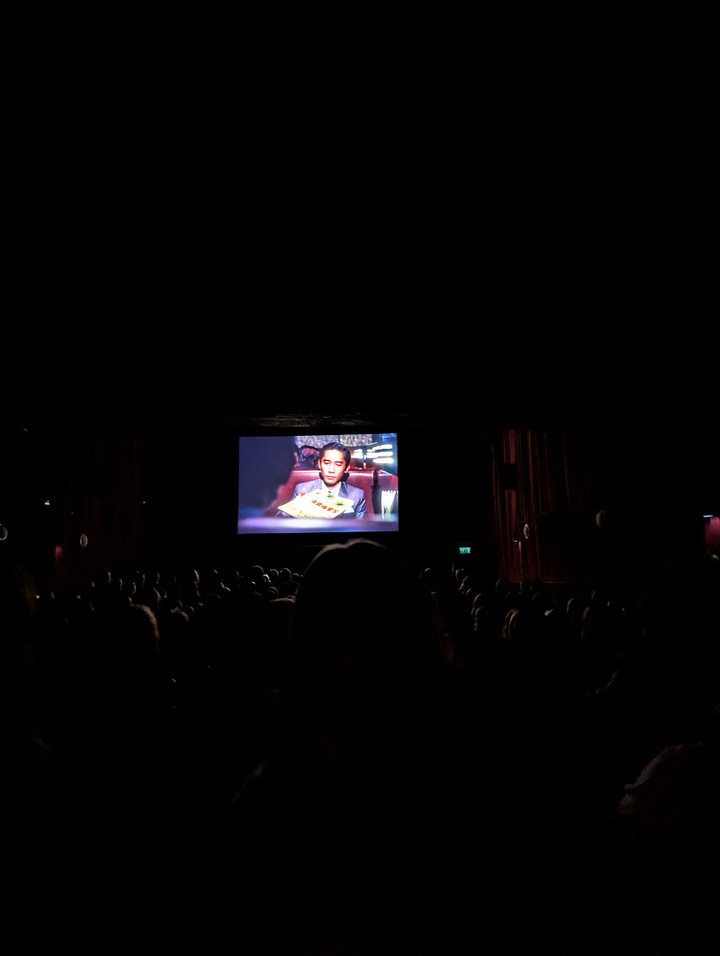
I saw In the Mood for Love for the fourth time at Prince Charles Cinema with Niña. It was about a month and three weeks after I had left my job, and I found myself having difficulty leaving the house and interacting with people. Still, I went. I loved the film, and I loved spending time with Niña. I took an anti-anxiety medication a couple of hours before leaving just to calm my bodily reactions, because I wanted to be there. If I could only just stop panicking.
I knew I was going to have a lovely time, in the same way that I knew I loved the film I was going to see.
This time, it felt like watching a different film altogether. You spend enough time with longing and loss, the other aspects of life will appear to you more starkly. Perhaps it comes with being with someone I know will not leave me. Or maybe, seeing it in a packed cinema has forced me to focus on all the its parts. Not just the sad ones. I don’t really know. All I know is that I laughed at the film more than I remember ever laughing at it before. “I never realised how funny it was,” I said. “Maybe it’s the meds.”
Perhaps it is. Perhaps it’s less painful now that I’m happier.





